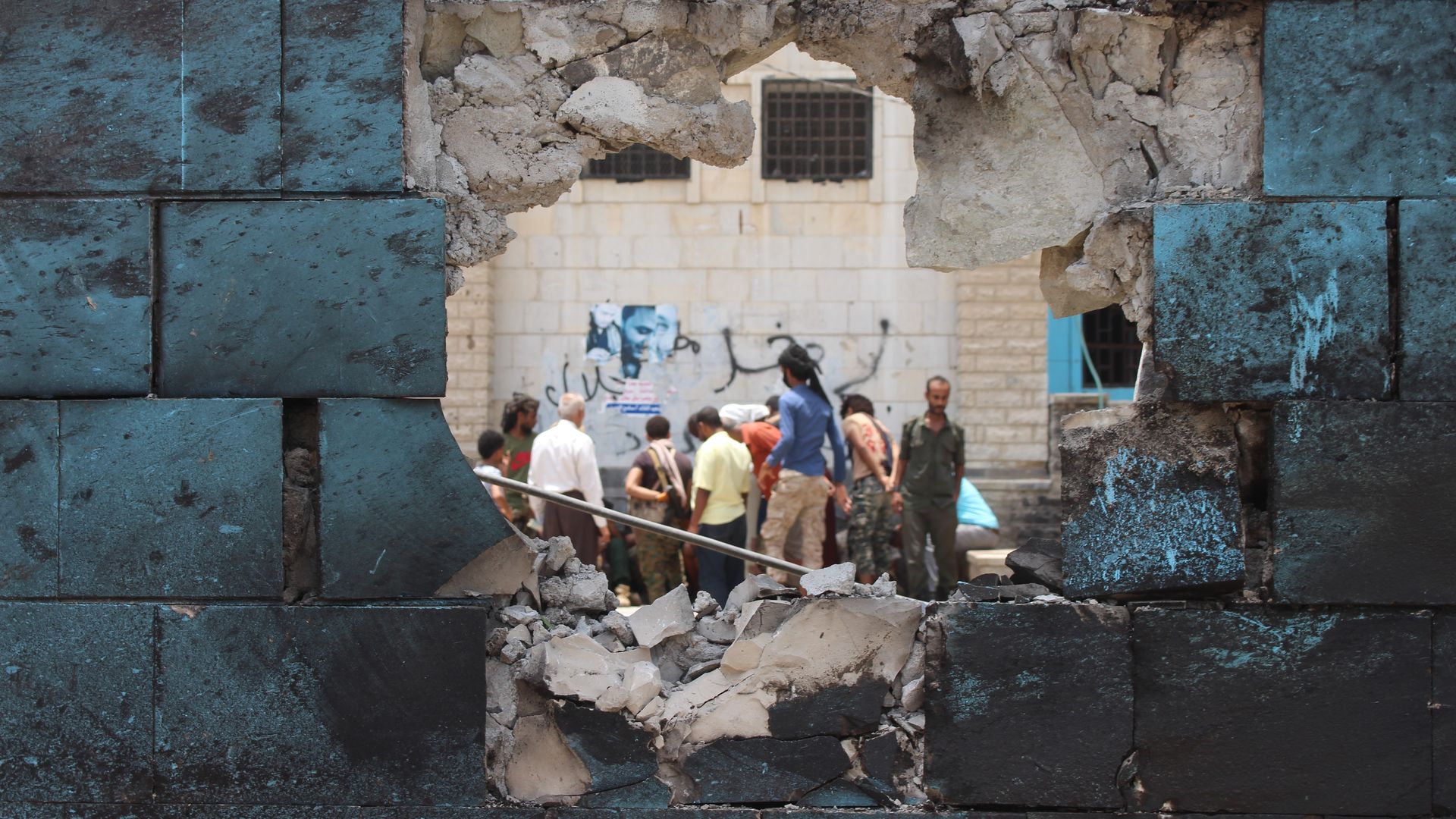Biggest test of Iran-Saudi deal will be in Yemen
- Dave Lawler, author of Axios World

The aftermath of a car bombing in Aden in 2021. Photo: Wael Shaif Thabet/Anadolu Agency via Getty Images.
The testing ground for the Iran-Saudi normalization deal, announced on Friday and brokered by China, will be in Yemen.
Why it matters: The truce that halted fighting in Yemen expired in October, though diplomacy has continued and full-scale warfare hasn't resumed. The Saudis seem desperate to pull out after eight years fighting the Houthi rebels, who ousted a Saudi-allied government from the capital in 2015.
- Iran has allegedly armed and aided the Houthis, who have in turn carried out dozens of missile and drone strikes across the border into Saudi Arabia.
- While few details have been released publicly, analysts believe Saudi Arabia wouldn't have signed an agreement to restore relations with Iran without a promise that Tehran would stop arming the Houthis (which they've long denied doing) and perhaps pressure them to stop the cross-border attacks.
- With Saudi-Houthi negotiations well underway, Friday's news sparked cautious hopes for a more durable peace in Yemen.
Yes, but: The Saudi-Houthi talks exclude many of the key players in Yemen. The UN hopes they'll set the stage for intra-Yemeni talks — an uncomfortable echo of the failed peace process in Afghanistan. It remains to be seen whether the detente between Saudi Arabia and Iran will change the course of the conflict.
- "Iran might be able to encourage the Houthis to escalate," says Veena Ali-Khan, a Yemen researcher at the International Crisis Group. "Whether or not they have the ability to encourage the Houthis to de-escalate is a whole different story."
- A deal to extend the truce collapsed in October when the Houthis demanded the Saudis pay the salaries not just of government workers but also of soldiers in the areas they control — effectively insisting Riyadh fund the opposing army.
- The Houthis are sticking with their maximalist demands and are likely willing to resume fighting to consolidate control. Some within the movement have already noted that they don't take their orders from Tehran.
- With their Saudi allies searching for the exits, meanwhile, Yemen's internationally recognized government is divided about the path forward.
State of play: While the pause in fighting has brought some relief for civilians, Yemen's economy remains shattered, travel within the country is difficult and dangerous, and the humanitarian crisis is far from over.
- "There's a huge psychological impact in people not knowing whether there's going to be a return to conflict or a peace agreement which they have really no say in. I think this limbo period is, psychologically, very torturous for people," says Ali-Khan, who just returned from visiting three cities in Yemen.
No comments:
Post a Comment